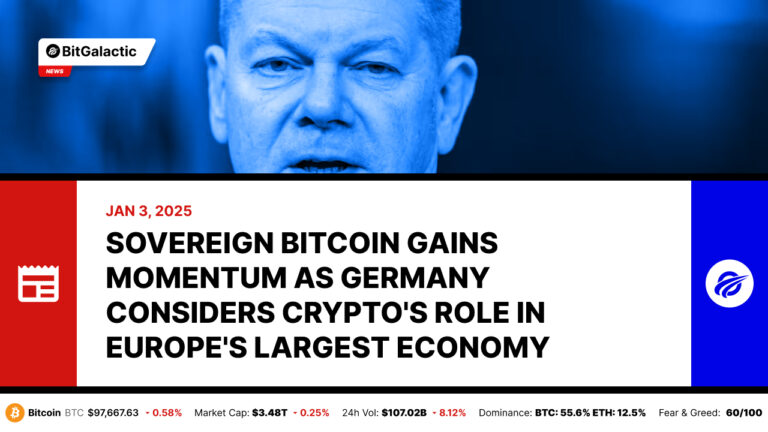Sovereign Bitcoin Gains Momentum as Germany Considers Crypto's Role in Europe's Largest Economy.
For years, Bitcoin enthusiasts have envisioned their favored cryptocurrency playing a significant role in national financial systems. Once dismissed as an improbable idea, this vision is now gaining traction.
A Shift in Perception
Germany’s centrist Free Democratic Party has recently included a proposal to integrate Bitcoin and blockchain-based assets into the nation’s financial framework in its latest manifesto. This marks a significant shift for a country known for its cautious fiscal policies.
Not long ago, German leaders criticized their southern European counterparts for financial mismanagement. Now, they are exploring the adoption of one of the most volatile financial assets. However, this development comes during a period of political turmoil. Following a vote of no confidence in Chancellor Olaf Scholz on December 16, Germany faces elections in February, with the far-right AfD party gaining momentum. Elon Musk’s public endorsement of the party has further fueled speculation about the synergy between Bitcoin and disruptive politics.
The US Narrative
This theme isn’t limited to Europe. In the United States, Bitcoin has entered mainstream political discussions. President-elect Donald Trump floated the idea of creating a Bitcoin strategic reserve in July, earning support and funding from the crypto community. However, as columnist Wolfgang Münchau points out, the mechanics of such a reserve are complex. Classifying Bitcoin as a semi-official currency could provide the U.S. government tools to stabilize its value but might limit the administration’s flexibility in managing the dollar’s competitiveness.
Moreover, positioning Bitcoin as a reserve asset alongside the dollar could destabilize confidence in the global financial system, potentially triggering unforeseen economic disruptions.
Lessons from El Salvador
While developed nations debate the risks, smaller economies like Argentina and the Central African Republic are taking cues from El Salvador. The country, an early adopter of Bitcoin as legal tender, has integrated it into its fiscal policies with notable financial gains. El Salvador now holds 6,000 Bitcoins, valued at $563 million, reflecting a 127% return on investment. President Nayib Bukele proudly highlighted this growth, suggesting that sovereign Bitcoin adoption can yield significant returns.
As these examples inspire other nations, the momentum for sovereign Bitcoin adoption is likely to grow, regardless of its complexities.
Bitgalactic’s Take
The integration of Bitcoin into national financial systems is no longer a fringe idea. While early adopters like El Salvador demonstrate its economic potential, larger players like Germany entering the conversation mark a turning point. However, as Bitgalactic observes, such moves come with inherent risks—both to domestic economies and the global financial order. For now, the future of sovereign Bitcoin seems poised at the intersection of innovation and disruption. How the world navigates this uncharted terrain remains a story to watch closely.
Share this post


